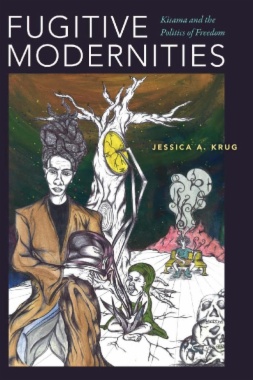During the early seventeenth century, Kisama emerged in West Central Africa (present-day Angola) as communities and an identity for those fleeing expanding states and the violence of the trans-Atlantic slave trade. The fugitives mounted effective resistance to European colonialism despite—or because of—the absence of centralized authority or a common language. In Fugitive Modernities Jessica A. Krug offers a continent- and century-spanning narrative exploring Kisama's intellectual, political, and social histories. Those who became Kisama forged a transnational reputation for resistance, and by refusing to organize their society around warrior identities, they created viable social and political lives beyond the bounds of states and the ruthless market economy of slavery. Krug follows the idea of Kisama to the Americas, where fugitives in the New Kingdom of Grenada (present-day Colombia) and Brazil used it as a means of articulating politics in fugitive slave communities. By tracing the movement of African ideas, rather than African bodies, Krug models new methods for grappling with politics and the past, while showing how the history of Kisama and its legacy as a global symbol of resistance that has evaded state capture offers essential lessons for those working to build new and just societies.
- Cover
- Contents
- Acknowledgments
- Note on Cartography
- List of Archives and Abbreviations
- Introduction. Fugitive Modernities: Chronotope, Epistemology, and Subjectivity
- Chapter One. Kafuxi Ambari and the People without State’s History: Forging Kisama Reputations, c. 1580–1630
- Chapter Two. “They Publicize to the Neighboring Nations That the Arms of Your Majesty Do Not Conquer”: Fugitive Politics and Legitimacy, c. 1620–55
- Chapter Three. “The Husbands Having First Laid Down Their Lives in Their Defense”: Gender, Food, and Politics in the War of 1655–58
- Chapter Four. (Mis)Taken Identities: Kisama and the Politics of Naming in the Palenque Limón, New Kingdom of Grenada, c. 1570–1634
- Chapter Five. Fugitive Angola: Toward a New History of Palmares
- Chapter Six. “The Ashes of Revolutionary Fires Burn Hot”: Brazilian and Angolan Nationalism and the “Colonial” and “Postcolonial” Life of the Kisama Meme, c. 1700–Present
- Conclusion. Fugitive Modernities in the Neoliberal Afterlife of the Nation-State
- Notes
- Bibliography
- Index

